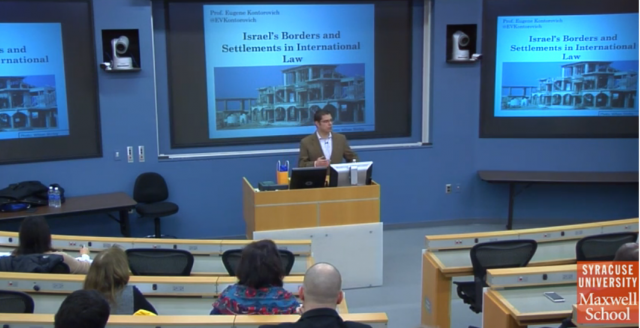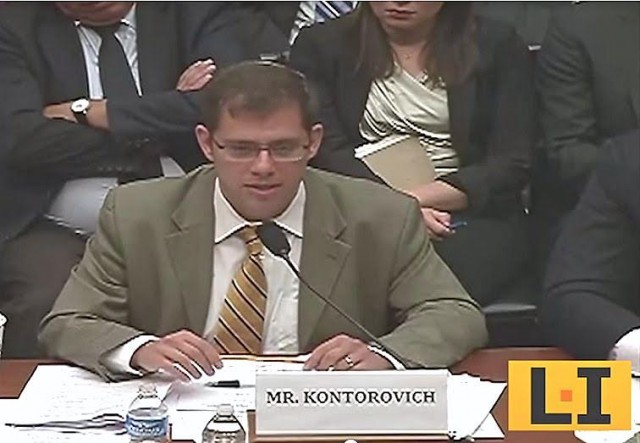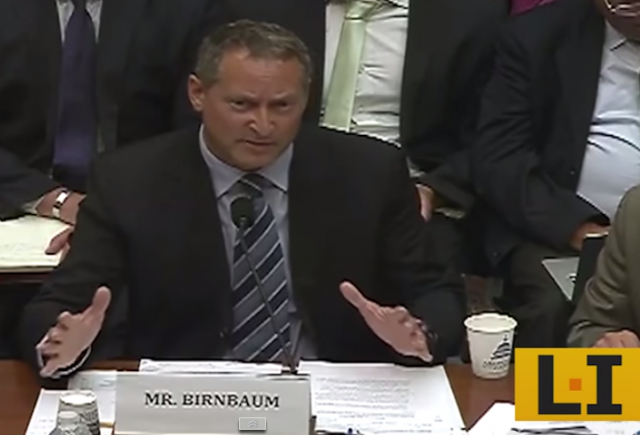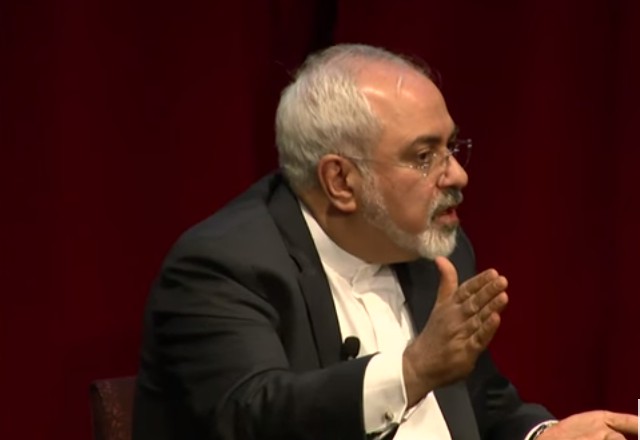The Legal Case for Israel’s ‘Settlements’
on March 10, 2016
7 Comments
Most people around the world firmly hold to the view that Israel’s residential housing communities built in Judea and Samaria/the West Bank are “illegal”.
For years, this fictitious claim has fed a wild campaign of incitement and ‘lawfare’ against Israel, based on the myth that Jews have no legal right to live or make their homes on Palestinian-claimed lands in the West Bank.
But the truth is that Israel isn’t an unlawful occupying power—certainly not according to any binding international laws.
Now, Northwestern University Professor of Law Eugene Kontorovich, a leading expert in the fields of constitutional law, international law, and the intersection of law and economics, is on a speaking tour of universities and colleges to explain why.
 Below I summarize the legal case for Israel’s West Bank settlements according to Kontorovich. A 50 minute video of his remarks is also embedded.
Below I summarize the legal case for Israel’s West Bank settlements according to Kontorovich. A 50 minute video of his remarks is also embedded.
 Below I summarize the legal case for Israel’s West Bank settlements according to Kontorovich. A 50 minute video of his remarks is also embedded.
Below I summarize the legal case for Israel’s West Bank settlements according to Kontorovich. A 50 minute video of his remarks is also embedded.





















